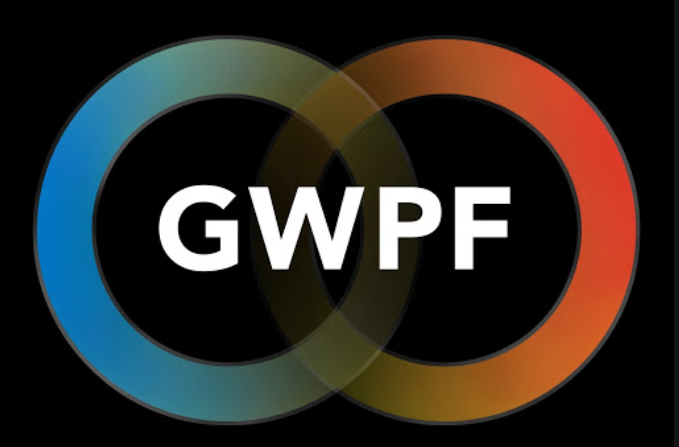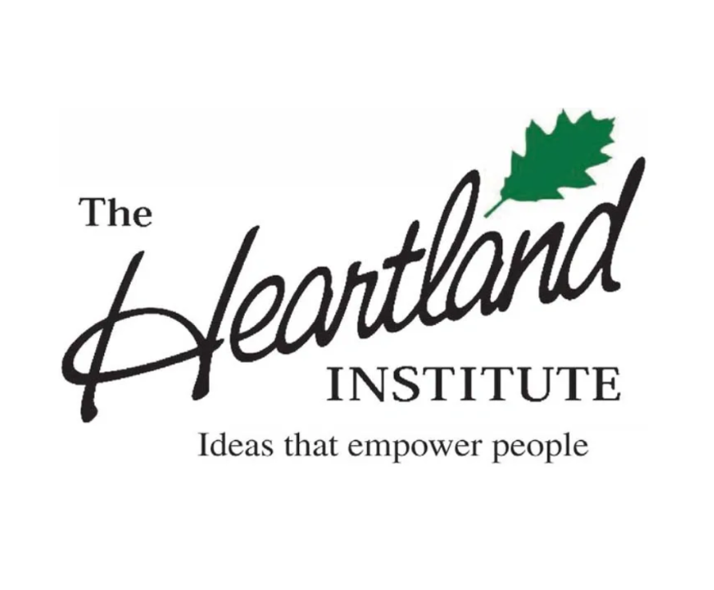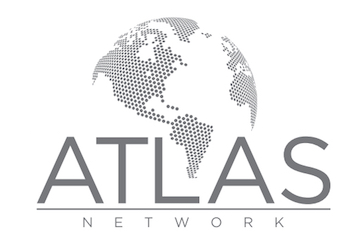International Policy Network (IPN)
Background
IPN started as a UK-based charity that went by the name of the International Institute for Economic Research, founded in 1971 by Sir Antony Fisher. The group has gone through a number of changes in structure, but appears to have been inactive in the UK since 2013. In the United States, the IPN appears to still be operating Washington, D.C. and is headed by Julian Morris.
The group, which has promoted contrarian views on the risks posed by burning fossil fuels while attacking policies to promote renewable energy, changed its name to the International Policy Network and, in 2001, incorporated a sister organization in the United States called the International Policy Network US, Inc.
According to IPN, “The two organizations are separate legal and financial entities with independent boards, working together with a common vision.”1“IPN’s History,” International Policy Network. Archived March 31, 2010.
According to an archived version of their website, the International Policy Network (IPN) is an “independent, non-partisan think tank” and non-profit, 501(c)(3) organization.2“About IPN,” International Policy Network. Archived April 25, 2013. An archived version of their Guiding Principles is also available here.3“Statement of International Policy Network’s Independence and Guiding Principles,” International Policy Network. Archived June 25, 2009.
At their height, the International Policy Network (IPN) also had branches in Chile and India. In 2003, all offices shut down except for the London, UK branch. The UK branch later shut down in June, 2011, after former chairman Linda Whetstone left the group, and only International Policy Network US Inc. is still in operation. The International Policy Network (UK) now operates as Network for a Free Society.4Brendan Montague. “Climate change sceptic think tank shuts down,” The Independent, June 21, 2011. Archived September 2, 2015. 5“Our History,” Network for a Free Society. Archived September 2, 2015.
The International Policy Network is closely related to the Atlas Economic Research Foundation, also founded by Antony Fisher and originally based in the UK. Atlas has also been called the Atlas Foundation, the Atlas Research Foundation, and now the Atlas Network (now based in the U.S.). The UK variant of the International Policy Network appears to have been a manifestation of the Atlas Economic Research Foundation:
According to UK Charity Commission filings (PDF), The Atlas Economic Research Foundation (UK) was “working as the International Policy Network, is constituted under a trust deed dated 30 July 1971, as amended by a Scheme sealed on 19 July 1984. It is a charity registered with the Charity Commission for England and Wales, number 262982. In April 2001, with the consent of the Charity Commission, it adopted the working name of The International Policy Network, ‘IPN’, and in December 2004, ‘UK’ was added to the name. It is now known as The International Policy Network UK or IPN UK.”6“Atlas Economic Research Foundation (UK) working as The International Policy Network UK: Report and Financial Statements” (PDF), July 24, 2008, Retrieved January, 2012, from charitycommission.gov.uk (Charity no: 262982).
The UK Atlas Economic Research Foundation and the IPN UK are no longer in operation or listed among UK Charities. The U.S. Atlas Network appears to be a separate entity from the International Policy Network US Inc., although Atlas Network’s financial records reveal that they continued to provide support to IPN as late as 2010.7“Return of Organization Exempt From Income Tax” (PDF – 2010), Retrived from Atlasnetwork.org. Archived September 1, 2015. 8“INTERNATIONAL POLICY NETWORK,” ProPublica Nonprofit Explorer. Accessed September 1, 2015.
According to ExxonSecrets, the Atlas Economic Research Foundation received at least $1,082,500 from ExxonMobil since 1998.9“ExxonSecrets Factsheet: Atlas Economic Research Foundation, ATLAS, AERF,” ExxonSecrets.org. Accessed September 1, 2015.
Stance on Climate Change
According to a book IPN published in 2006, “Humanity has until at least 2035 to determine whether or not mitigation will also be a necessary part of our strategy to address climate change … attempting to control it through global regulation of emissions would be counterproductive.”10George Monbiot. “Pundits who contest climate change should tell us who is paying them,” The Guardian, September 26, 2006.
Funding
According to their website, “IPN is supported entirely by charitable donations from individuals, foundations and businesses. It receives no money from any government or political parties, and it does no contract work.”11“About IPN,” International Policy Network. Archived April 25, 2013.
See the attached spreadsheet for additional information on International Policy Network funding by year (.xlsx).
Note: According to publicly available 990 tax forms, The International Policy Network (UK) sometimes received funding through the US branch (EIN 52-2363626). Not all 990 forms specified which IPN branch was receiving funds.
| Donor | International Policy Network (Unspecified) | International Policy Network UK | International Policy Network US | Network for a Free Society | Grand Total |
| Donors Capital Fund | $1,194,850 | $1,194,850 | |||
| PhRMA | $1,031,500 | $1,031,500 | |||
| DonorsTrust | $17,820 | $435,500 | $453,320 | ||
| Exxon Mobil | $390,000 | $390,000 | |||
| The Randolph Foundation | $283,922 | $283,922 | |||
| Sarah Scaife Foundation | $275,000 | $275,000 | |||
| Ravenel And Elizabeth Curry Foundation | $145,000 | $145,000 | |||
| Earhart Foundation | $105,000 | $105,000 | |||
| Pierre F. and Enid Goodrich Foundation | $10,000 | $41,000 | $30,000 | $81,000 | |
| Schwab Charitable Fund | $50,000 | $50,000 | |||
| Claude R. Lambe Charitable Foundation | $25,000 | $25,000 | |||
| The Gilder Foundation | $10,000 | $10,000 | |||
| Atlas Economic Research Foundation | $10,000 | $10,000 | |||
| Gilder Foundation | $10,000 | $10,000 | |||
| The Roe Foundation | $7,500 | $7,500 | |||
| John William Pope Foundation | $5,000 | $5,000 | |||
| Americans for Tax Reform | $3,000 | $3,000 | |||
| Aequus Institute | $1,000 | $1,000 | $2,000 | ||
| Grand Total | $311,422 | $311,820 | $3,428,850 | $30,000 | $4,082,092 |
ExxonMobil Funding
Greenpeace’s ExxonSecrets confirms that the International Policy Network (IPN) received at least $390,000 from ExxonMobil since 1998.12ExxonSecrets Factsheet: International Policy Network – North America, IPN.
DeSmog reported ExxonMobil had donated $95,000 to IPN in 2006, but further funding was in serious jeopardy. According to accounts filed by the charity, “the trustees of IPN UK concluded that the institute’s objective would presently be best achieved primarily through the provision of support to IPN UK’s sister organization and others, rather than acting directly.”13Brendan Montague. “How One UK Climate Denial Think Tank’s Links to ExxonMobil Led to its Downfall,” DeSmog UK, July 16, 2015.
Professor Mark Pennington, a member of the IPN academic advisory board at the time, told DeSmog “The reason [the IPN] doesn’t exist [any more] is because it was very damaged by allegations that came out, again I think totally unfounded allegations, by people like George Monbiot saying that, you know, this is a front for the oil industry… I know that… they were very badly damaged by accusations that George Monbiot made… basically claiming that they were equivalent to organizations that denied a link between cancer and smoking.”
George Monbiot also accused the IPN of acting as a lobby group disguised as a charity think tank. He said that IPN President Julian Morris had received £10,000 from a US tobacco company and cited IPN co-founder Roger Bate’s letter to R.J. Reynolds Tobacco Company asking for $50,000 for a book about risk.14“Who’s Paying?” September 26, 2006, Monbiot.com. Archived September 1, 2015.
990 Forms – IPN US
UK Charity Filings – Network for a Free Society
Key People
Notable authors and contributors include:
- Kendra Okonski — Previously listed as “Sustainable Development Project Director.”15“About International Policy Network,” International Policy Network. Archived August 3, 2004.
- Indur M. Goklany
- Benny Peiser
- Barun Mitra
- Wolfgang Kasper
- Paul Reiter
- Stephanie Drnasin
- Martin Agerup
- Zafar H. Anjum
- Richard Tren
- Stuart Buck
- Andrew Kenny
- Martin Livermore
- Dominic Standish
- Carlo Stagnaro
- Bruce Yandle
Board Members
As of June, 2012, IPN’s website listed the following board members (their website is no longer in operation):16“Board Members,” International Policy Network. Archived June 22, 2012.
- Julian Morris — President and past Executive Director.17“Julian Morris,” International Policy Network. Archived July 10, 2012.
- Amity Shlaes — Chairman
- Chris Whitten
- Bridgett Wagner
- Daniel Oliver
- Gerry Ohrstrom
Linda Whetstone was a leading member of the organization both in the UK and the US until the UK branch disbanded, according to an article in The Independent.18Brendan Montague. “Climate change sceptic think tank shuts down,” The Independent, June 21, 2011. Archived September 2, 2015.
Actions
August 2010
The International Policy Network (IPN) released a report titled “Seven Myths about Green Jobs” (PDF) — authored by Andrew P. Morriss, William T. Bogart, Andrew Dorchak and Roger E. Meiners.19Andrew P. Morriss, William T. Bogart, Andrew Dorchak, Roger E. Meiners. “Seven Myths About Green Jobs” (PDF), International Policy Network, August, 2010.
According to the IPN press release, the report concludes that “’green’ investments by governments are often counterproductive, wasting resources, reducing productivity and harming future generations.”20Julian Morris. “The Unseen Costs of “Green” Investments and Initiatives,” IPN, August 30, 2010. Archived May 23, 2013.
February, 2010
IPN director Julian Morris appeared on the UK’s Sky News where he criticised the publication of a summary report from the United Nation’s Intergovernmental Panel on Climate Change.
Morris made a number of claims about uncertainties in the science linking human emissions to global warming. Morris claimed that it would be wrong to restrict developing countries such as India and China to burning fossil fuels.
December 6, 2005
Published Carrots, Sticks and Climate Change: A primer on down-to-earth ideas for climate policy by Wolfgang Kasper, Barun Mitra, and Indur M. Goklany.
The book argues that “Global agreements that seek by government fiat to restrict greenhouse gas emissions are costly, ineffective against climate-sensitive problems, and would perpetuate poverty.” They advocate a “broad adaptive strategy” and “decentralized government” as solutions.21“Carrots, Sticks and Climate Change: A primer on down-to-earth ideas for climate policy,” International Policy Network, December 6, 2005. Archived July 10, 2010.
2005
DeSmog reports how Julian Morris persuaded Sonja Boehmer-Christiansen to allow staff at the International Policy Network (UK) to “guest edit” her Energy and Environment journal.22Brendan Montague. “How an ExxonMobil-Funded Think Tank Took Over a Scientific Journal,” DeSmogUK, June 17, 2015.
Speaking to DeSmog, Boehmer-Christiansen claimed she had no idea Morris had received funding from ExxonMobil when she agreed to hand over control of the journal. Energy and Environment was, however, known for publishing papers written by climate change sceptics.
She said, “[Morris] broadened our perspective quite a lot… He was doing a PhD; he visited me once in London and we had a long discussion which might have included me doing the supervising or something… I have been to his office when it was near Covent Garden when he did edit this special issue.”23Brendan Montague. “How an ExxonMobil-Funded Think Tank Took Over a Scientific Journal,” DeSmogUK, June 17, 2015.
Asked if she knew at that time that the IPN was funded by ExxonMobil, she said: “I would not have been aware of it at the time; all I knew was that he was very much in favour of free markets… I totally wasn’t aware of it.”
May/June 2005
Mother Jones named the IPN among 40 groups funded by Exxon Mobil, many of which attacked the Arctic Climate Impact Assessment report.24“Put a Tiger In Your Think Tank,” Mother Jones, May/June 2005 Issue. Archived September 3, 2015.
The magazine stated that “as the world burns think tanks and journalists funded by ExxonMobil are out to convince you global warming is a hoax.”25Bill McKibben, Chris Mooney, & Ross Gelbspan. “May/June 2005: As the World Burns,” Mother Jones. Archived September 3, 2015.
November 2004
Morris pushed to publish an article in The Guardian that put forward the IPN assertion that the scientific analysis in the influential 2004 Arctic Climate Impact Assessment report was “flawed.”26Tim Radford. “Climate change claims flawed, says study,” The Guardian, November 9, 2004. Archived September 3, 2015.
The International Policy Network’s study claimed that the science warning of an environmental disaster caused by climate change is “fatally flawed” and that previous predictions of changes in sea level of a metre over the next 100 years were overestimated, reports The Guardian.27Antony Barnett and Mark Townsend. “Greenhouse effect ‘may benefit man’,” The Observer, November 28, 2004. Archived September 3, 2015.
DeSmog reported that The Arctic study had been delayed until after the 2004 US election cycle “because its findings were so significant that the administration feared voters would react by electing a president who was promising effective action on the environment.”28Brendan Montague. “That Time When an International Free Market Think Tank Attacked The Kyoto Protocol,” DeSmog UK, June 16, 2015.
However, sceptics in the US successfully created doubt around the original Assessment report by citing the IPN and the article in The Guardian.
Tim Radford, the Guardian journalist who published the article, confirmed he did not know the IPN was funded by Exxon at the time of the story.29Brendan Montague. “That Time When an International Free Market Think Tank Attacked The Kyoto Protocol,” DeSmog UK, June 16, 2015.
November, 2004
Julian Morris echoed criticisms made by Myron Ebell, director of the Competitive Enterprise Institute (CEI), of Sir David King – the then chief scientific advisor to the British government. He called King “an embarrassment to himself and an embarrassment to his country.”30Antony Barnett and Mark Townsend. “Greenhouse effect ‘may benefit man’,” The Observer, November 28, 2004. Archived September 3, 2015.
Later that month, Morris also criticized Prime Minister Tony Blair for his attempt to use his presidency of the forthcoming G8 summit of world leaders to put greenhouse emissions reductions at the centre of the discussions.31Brendan Montague. “That Time When an International Free Market Think Tank Attacked The Kyoto Protocol,” DeSmog UK, June 16, 2015.
IPN activists also attended the 10th international United Nations COP climate change negotiations in Argentina, translating its reports into Spanish for the occasion.32Brendan Montague. “That Time When an International Free Market Think Tank Attacked The Kyoto Protocol,” DeSmog UK, June 16, 2015.
June 21, 2004
Published Environmental and Health: Myths and Realities. Authors included Julian Morris, Kendra Okonski, Indur M. Goklany, and Paul Reiter.
Although the book’s focus is on what the authors consider “exaggerated” health risks associated with pesticides, dioxin, nitrates, radiation, endocrine disrupters, it also mentions global warming and the precautionary principle.
Some of the book’s key conclusions are how “The effects of warmer temperatures are generally beneficial in the medium term and for most of the world,” and that “[…] synthetic pesticides are beneficial to humanity, enabling better nutrition and health,” and that “prevent[ing] low doses of radiation are unnecessary and a wasteful use of society’s resources.”33“Environment and Health: Myths and Realities,” International Policy Network, June 21, 2004. Archived June 2, 2013.
April 23, 2004
Published a paper entitled “Climate change predictions: bad economics, bad science,” by Martin Agerup.34“Climate Change Body Faces Criticism for Bad Economics, Bad Science*,” (IPN Press Release), April 23, 2004. Archived August 3, 2004.
December 1, 2003
Published the book “Adapt or Die: The science, politics and economics of climate change,” edited by Kendra Okonski.
According to the book’s press release, the book “challenges the view that climate change will be catastrophic, and that ‘climate control’ is necessary.”35“Adapt or Die: The science, politics and economics of climate change” (IPN Press Release), December 1, 2003. No longer available online.
Okonski argues that “Attempts to control the climate through restrictions on greenhouse gas emissions would have little effect on the earth’s climate, but would harm our ability to adapt to climate change by slowing economic growth and diverting resources into inappropriate uses.”
Contributing authors include Paul Reiter, Dominic Standish, Indur M. Goklany, Martin Agerup, Barun S. Mitra, Andrew Kenny, Julian Morris, Martin Livermore, Benny Peiser, and Carlo Stagnaro.
October, 2003
Jullian Morris criticized the Kyoto Protocol and suggested that restrictions on fossil fuels would slow economic growth.36Brendan Montague. “That Time When an International Free Market Think Tank Attacked The Kyoto Protocol,” DeSmog UK, June 16, 2015.
He said: “Kyoto would slow economic growth in the EU and in Russia without providing any substantive benefits. If Russia does not ratify, Kyoto will not come into force, so both Russia and EU countries will grow more rapidly and then can look for alternative solutions to climate change.”37(Press Release). “Should Russia ratify Kyoto?” PR Newswire Association, October 1, 2003. Accessed September 3, 2015 from The Free Library.
International Policy Network Contact & Location
As of April 2010, the International Policy Network listed the following contact information on its website:38“Contact Us,” International Policy Network. Archived April 15, 2010. Archived .pdf on file at DeSmog.
International Policy Network
Rooms 200-205
Temple Chambers
3-7 Temple Avenue
London EC4Y 0HP
United Kingdom
Tel: +44.20.3393.8410
Fax: +44.20.3393.8411
US phone number: 1.202.379.1906
Related Organisations
- Sustainable Development Network — Shares web server, telephone number, and some staff members.
- International Institute for Economic Research — The predecessor to IPN.
- Competitive Enterprise Institute (CEI) — According to SourceWatch, the addresses and switchboard number for the CEI and the US office of the IPN used to be identical.39“International Policy Network,” SourceWatch.
- Atlas Economic Research Foundation
- Civil Society Coalition on Climate Change40Brendan Montague. “Climate change sceptic think tank shuts down,” The Independent, June 21, 2011. Archived September 2, 2015.
- Network for a Free Society
According to Sourcewatch, the following organizations are (or have been) members of IPN:
- Institute of Public Policy Analysis, Nigeria
- Inter-Region Economic Network, Kenya
- Free Market Foundation, South Africa
- Africa Freedom Network
- Africa Fighting Malaria
- Africa Resource Bank
- Bazaar Chintan, India
- Foundation for Democracy in Africa, Washington
- Kenya Institute of Public Policy Research and Analysis
- Society for Research and Initiatives for Sustainable Technologies and Institutions, India
- Action Research Community Health, India
- Institute of Public Affairs, Australia
- Making Our Economy Right, Bangladesh
- Open Republic Insitute, Ireland
- Association for Liberal Thinking, Turkey
- Centre for the New Europe, Belgium
- Eudoxa, Sweden
- Timbro, Sweden
- Copenhagen Institute, Denmark
- Liberty Institute, India
- Centre for Civil Society, India
- European Science and Environment Forum
- Institute of Economic Affairs
- Tech Central Station
- Inter Region Economic Network – Kenya
- Kenya Institute of Public Policy Research and and Analysis (KIPPRA)
- Montreal Economic Institute
- www.worldgrowth.org
- Centro de Divulgacion del Conocimiento Economico, Venezuala
- Centro Interdisciplinar de Etica e Economia Personalista, Brazil
- Fundacion DL, Colombia
- Libertad y Desarrollo, Chile
- Fundacion Libertad Democracia y Desarrollo, Bolivia
- Instituto de Libre Empresa, Peru
- Cordell Hull Institute, USA
Other Resources
- “International Policy Network,” Wikipedia.
- Richard Littlemore. “UK Climate Denial Tank Shuts its Doors,” DeSmog, June 22, 2011.
- George Monbiot. “Pundits who contest climate change should tell us who is paying them,” The Guardian, September 26, 2006.
- Antony Barnett and Mark Townsend. “Greenhouse effect ‘may benefit man’,” The Observer, November 28, 2004.
- Brendan Montague. “How the Free Market Friendship Between Julian Morris and Roger Bate Came to an End,” DeSmog UK, June 4, 2015.
- Brendan Montague. “How Julian Morris Led the British Charge Against Climate Science in 2003,” DeSmog UK, June 2, 2015.
Resources
- 1“IPN’s History,” International Policy Network. Archived March 31, 2010.
- 2“About IPN,” International Policy Network. Archived April 25, 2013.
- 3“Statement of International Policy Network’s Independence and Guiding Principles,” International Policy Network. Archived June 25, 2009.
- 4Brendan Montague. “Climate change sceptic think tank shuts down,” The Independent, June 21, 2011. Archived September 2, 2015.
- 5“Our History,” Network for a Free Society. Archived September 2, 2015.
- 6“Atlas Economic Research Foundation (UK) working as The International Policy Network UK: Report and Financial Statements” (PDF), July 24, 2008, Retrieved January, 2012, from charitycommission.gov.uk (Charity no: 262982).
- 7“Return of Organization Exempt From Income Tax” (PDF – 2010), Retrived from Atlasnetwork.org. Archived September 1, 2015.
- 8“INTERNATIONAL POLICY NETWORK,” ProPublica Nonprofit Explorer. Accessed September 1, 2015.
- 9“ExxonSecrets Factsheet: Atlas Economic Research Foundation, ATLAS, AERF,” ExxonSecrets.org. Accessed September 1, 2015.
- 10George Monbiot. “Pundits who contest climate change should tell us who is paying them,” The Guardian, September 26, 2006.
- 11“About IPN,” International Policy Network. Archived April 25, 2013.
- 12
- 13Brendan Montague. “How One UK Climate Denial Think Tank’s Links to ExxonMobil Led to its Downfall,” DeSmog UK, July 16, 2015.
- 14“Who’s Paying?” September 26, 2006, Monbiot.com. Archived September 1, 2015.
- 15“About International Policy Network,” International Policy Network. Archived August 3, 2004.
- 16“Board Members,” International Policy Network. Archived June 22, 2012.
- 17“Julian Morris,” International Policy Network. Archived July 10, 2012.
- 18Brendan Montague. “Climate change sceptic think tank shuts down,” The Independent, June 21, 2011. Archived September 2, 2015.
- 19Andrew P. Morriss, William T. Bogart, Andrew Dorchak, Roger E. Meiners. “Seven Myths About Green Jobs” (PDF), International Policy Network, August, 2010.
- 20Julian Morris. “The Unseen Costs of “Green” Investments and Initiatives,” IPN, August 30, 2010. Archived May 23, 2013.
- 21“Carrots, Sticks and Climate Change: A primer on down-to-earth ideas for climate policy,” International Policy Network, December 6, 2005. Archived July 10, 2010.
- 22Brendan Montague. “How an ExxonMobil-Funded Think Tank Took Over a Scientific Journal,” DeSmogUK, June 17, 2015.
- 23Brendan Montague. “How an ExxonMobil-Funded Think Tank Took Over a Scientific Journal,” DeSmogUK, June 17, 2015.
- 24“Put a Tiger In Your Think Tank,” Mother Jones, May/June 2005 Issue. Archived September 3, 2015.
- 25Bill McKibben, Chris Mooney, & Ross Gelbspan. “May/June 2005: As the World Burns,” Mother Jones. Archived September 3, 2015.
- 26Tim Radford. “Climate change claims flawed, says study,” The Guardian, November 9, 2004. Archived September 3, 2015.
- 27Antony Barnett and Mark Townsend. “Greenhouse effect ‘may benefit man’,” The Observer, November 28, 2004. Archived September 3, 2015.
- 28Brendan Montague. “That Time When an International Free Market Think Tank Attacked The Kyoto Protocol,” DeSmog UK, June 16, 2015.
- 29Brendan Montague. “That Time When an International Free Market Think Tank Attacked The Kyoto Protocol,” DeSmog UK, June 16, 2015.
- 30Antony Barnett and Mark Townsend. “Greenhouse effect ‘may benefit man’,” The Observer, November 28, 2004. Archived September 3, 2015.
- 31Brendan Montague. “That Time When an International Free Market Think Tank Attacked The Kyoto Protocol,” DeSmog UK, June 16, 2015.
- 32Brendan Montague. “That Time When an International Free Market Think Tank Attacked The Kyoto Protocol,” DeSmog UK, June 16, 2015.
- 33“Environment and Health: Myths and Realities,” International Policy Network, June 21, 2004. Archived June 2, 2013.
- 34“Climate Change Body Faces Criticism for Bad Economics, Bad Science*,” (IPN Press Release), April 23, 2004. Archived August 3, 2004.
- 35“Adapt or Die: The science, politics and economics of climate change” (IPN Press Release), December 1, 2003. No longer available online.
- 36Brendan Montague. “That Time When an International Free Market Think Tank Attacked The Kyoto Protocol,” DeSmog UK, June 16, 2015.
- 37(Press Release). “Should Russia ratify Kyoto?” PR Newswire Association, October 1, 2003. Accessed September 3, 2015 from The Free Library.
- 38“Contact Us,” International Policy Network. Archived April 15, 2010. Archived .pdf on file at DeSmog.
- 39“International Policy Network,” SourceWatch.
- 40Brendan Montague. “Climate change sceptic think tank shuts down,” The Independent, June 21, 2011. Archived September 2, 2015.






